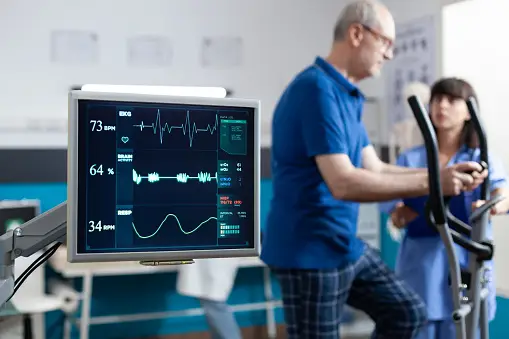Imagine waking up one day, only to find that you’ve lost the ability to speak. This nightmare became a reality for one woman when she suffered a stroke at the age of 30. Years later, thanks to the power of Artificial Intelligence (A.I.), she is on a remarkable journey to reclaim her voice. In this article, we delve into the innovative ways A.I. is transforming the field of speech restoration post-stroke.
Understanding the Impact of a Stroke
A stroke occurs when the blood supply to a part of the brain is disrupted, leading to the death of brain cells and potential loss of function in the affected area. One common consequence of a stroke is aphasia, a condition that impairs a person’s ability to speak, read, and write. For our protagonist, the stroke left her in a state of frustration and isolation, as she struggled to express herself verbally.
Enter A.I.: Revolutionizing Speech Restoration
Advancements in technology have opened new doors for stroke survivors seeking to regain their speech. A.I. has emerged as a game-changer, offering tailored solutions for speech restoration and communication rehabilitation. By analyzing vast amounts of linguistic and neurological data, A.I. algorithms can predict speech patterns, understand context, and assist individuals in relearning language skills.
The Personalized Journey to Regaining Speech
No two strokes are alike, and neither are the journeys to recovery. A.I. technology acknowledges this individuality, adapting its approach to suit each person’s needs. Through interactive apps and devices, stroke survivors can engage in speech exercises that are personalized to their specific challenges. These exercises target various aspects of communication, from vocabulary rebuilding to sentence formation, all while providing real-time feedback.
Empowering Both Patients and Therapists
A.I. isn’t replacing human therapists; rather, it’s complementing their expertise. Therapists can utilize A.I.-driven tools to track their patients’ progress more comprehensively and fine-tune their rehabilitation plans. This collaborative approach ensures that the recovery process is efficient, engaging, and attuned to the patient’s evolving needs.
Looking Ahead: The Promising Future of A.I. in Speech Restoration
As technology continues to evolve, the potential for A.I. in speech restoration is boundless. Researchers are exploring avenues such as neural implants that can interpret brain signals and convert them into speech. The goal is to bridge the gap between thought and vocalization, creating a seamless way for stroke survivors to express themselves.
The journey from losing one’s ability to speak due to a stroke to finding hope and restoration through A.I. is a testament to the resilience of the human spirit and the power of technology. With every advancement in A.I., more individuals are being given the opportunity to reclaim their voices, reconnect with loved ones, and regain their rightful place in the world of communication. As we celebrate the successes of today, we also eagerly anticipate the innovations that tomorrow will bring, continuing to transform the lives of stroke survivors one word at a time.












